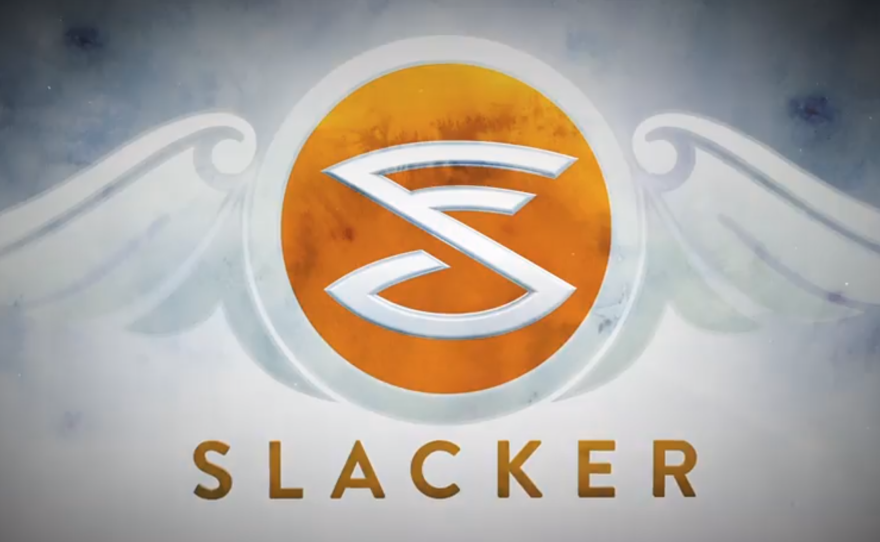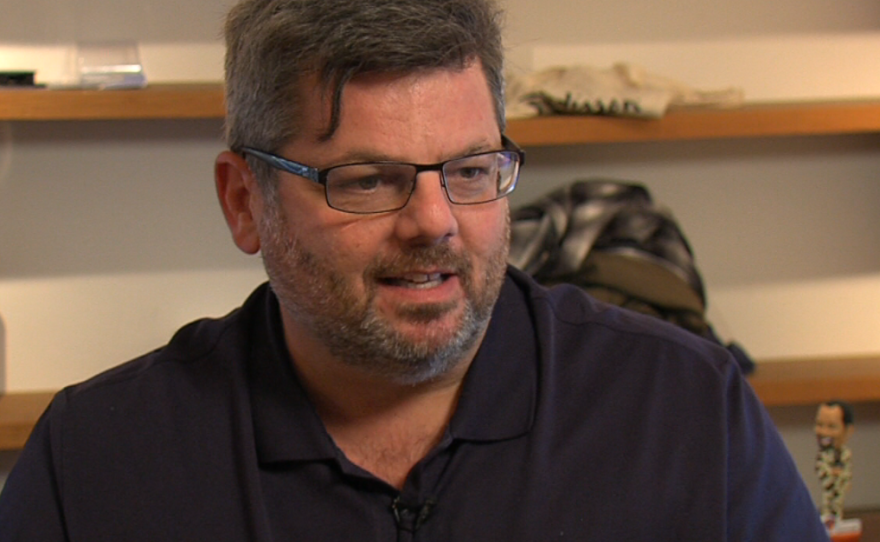Millions of smartphone-toting music fans are ditching the idea of owning their music. Now, when they want a steady stream of personally tailored tunes, they turn to online music services like Pandora and Spotify.
So far, savvy start-ups have dominated the music streaming business, but now tech giants like Apple and Google are hoping to wedge their way into the market too. How will a small Rancho Bernardo-based company like Slacker Radio take on such brand-name competition?
If they plan to stay alive, the people of Slacker will have to keep their hold on people like Son Vo. When Vo works out, he needs a beat, but he also wants to disconnect from the Internet.
"Sometimes when I run, I turn my phone on airplane mode, so I don't get text messages, no calls, no emails," Vo says. "It's just me and my music."
The option to play music offline is why Vo listens to Slacker instead of another, bigger service like Pandora, which doesn't allow offline play. He also likes that Slacker sounds more like trusty old FM radio. That's exactly what Slacker set out to do, said Jack Isquith, Slacker's senior vice president of strategic development & content programming.
"We were going to marry the best of old-school radio, where we had experts curating music, with this technology that gave users a lot of control," Isquith says.
Slacker sets itself apart from the Pandoras of the world with stations hosted by real people, many of them former radio DJs with cult followings. That's how they drew in Kristin Nielsen. She's a longtime fan of John Ries, the purveyer of obscure punk and bizarro soul who hosts a show called Swami Sound System.
"When I found out his show wasn't going to be on the radio anymore, I was sad and kept watching for something online," Nielsen recalled. "Then I saw Slacker had him and I thought, 'Definitely gotta get that app.'"
Slacker hires lots of music obsessives to oversee their content. Like Party Ben, who programs their electronic music channels.
"My real name is Ben Gill," Party Ben clarified. "My parents did not name me Party. They didn't see me come out and immediately know this guy was going to DJ."

Party Ben won his reputation as a mash-up pioneer, making unholy matrimonies like this union between punk noise and Destiny's Child. These days, Ben spends his time studying charts that track how Slacker users respond to different songs. Today he's seeing lots of people pressing the little heart button when they hear the new Daft Punk single, "Get Lucky." So he knows he better put "Get Lucky" into heavy rotation.
But just like radio Djs of yore, he can stick a few divisive songs in his playlists, like this new song from Swedish duo The Knife. "I can take their information and say, 'You know what? All you people who are voting to ban and get rid of this song – you're wrong!'" Party Ben said. "This song is great and I believe in it. And I'm going to put it in the 'A' category until you change your mind."
Slacker finds that its listeners like the occasional curveball. You don't really get curveballs with other leading online music players. Spotify gives listeners almost complete control over what they hear, and Pandora uses formulas to predict which songs listeners will like based on their general tastes.
Both Spotify and Pandora draw tens of millions of listeners to their services every day. Slacker is tiny by comparison, with just about five million active listeners. But it has managed to stay afloat in the highly competitive world of online radio since 2007 – practically a century in start-up years. Bad news is, its about to face even bigger competition.

At its 2013 Worldwide Developers Conference, Apple announced iTunes Radio. Starting this fall, Slacker will have to go toe-to-toe with the dominant force in online music sales. As if that weren't enough, Google also rolled out an online music player a few weeks ago.
But Isquith thinks Slacker isn't going anywhere. He's heard dire predictions about online music underdogs before, especially when terrestrial radio giant Clear Channel announced its online offering, iHeartRadio. Yet, Slacker is still standing.
"If you think about Apple, what we think is that something similar is probably going to happen," he said. "There's going to be a whole bunch of people—a next wave of people—who are interested in music on their devices online who are going to start to think about online radio who have never thought about online radio before."
And when they size up the competition, Isquith hopes they'll choose Slacker. Of course, Apple's entrance could easily cut the other way. Even Slacker devotees like Son Vo say they're intrigued by iTunes Radio.
"I have an iPhone. I have an iPad. I'm definitely going to check it out," Vo says. "I'm used to Apple and I like Apple products."
Vo isn't alone. One consumer poll showed one-third of online music listeners would switch to iTunes Radio based on the Apple name alone.






